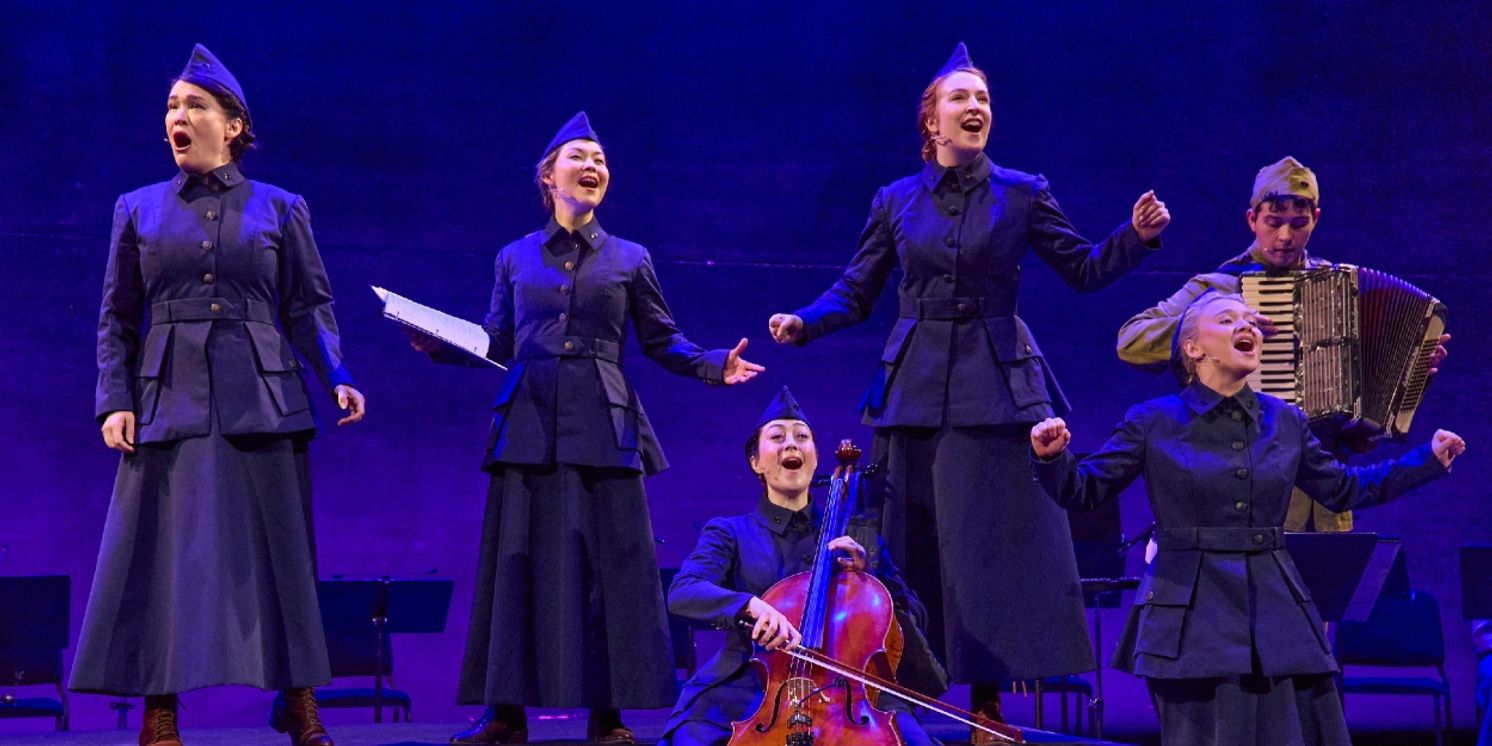Review: THE HELLO GIRLS at Terrace Theater/Kennedy Center
The next performance will be in New York.

The Hello Girls tells the notable story of the 223 female telephone operators who served in the Army Signal Corps during World War I. They got the job because they could each handle 300 phone calls an hour and were fluent in French and English. Because the women were experienced professionals, they could do the work more efficiently than Army men. Because the women were women, they were not recognized as military veterans until 1977 when all but 18 of them were dead. Because the women's contribution to winning the war was real, their story is notable.
A gifted cast of performers, directed by Cara Reichel (who co-wrote the book with composer/lyricist Peter Mills), presented one performance only at the Kennedy Center and will repeat the show in New York on Sunday at the Symphony Space on the Upper West Side. The Hello Girls had a world première run off-Broadway in the fall of 2018, during the centennial of World War I. Ellie Fishman stands out as Chief Operator Grace Banker, the leader of the belles from Bell Telephone; she's an outstanding singer-actress in a company full of hyphenated talents. Ben Moss is a singer-pianist-co-orchestrator-music director! Arlo Hill (he plays the glockenspiel) stands out with Fishman as Lt. Riser, her commanding officer and eventual true colleague. (Part of the fun of this show comes from watching the men in this unit learn and evolve during the last 8 months of the war.) Chanel Karimkhani is an outstanding singer-cellist; Lili Thomas doubles in brass. Reichel has all necessary motion masterfully organized: the placement of music stands becomes as important as blocking actors.
The production is too loud because over-amplification has become fashionable and customary in musical theatre. Frequently the words to the songs are drowned out by electrified pianos, et. al. But the true question is whether this notable story is best told through the medium of musical theatre. Mills occasionally creates a song that alludes to the syncopated numbers which were in style from 1914-1918. And his "Cryptic Triptych"--a patter song that demonstrates hilariously how the operators learned the code names necessary to protect the battlefield phone calls from proto-hackers--owes much to and salutes Gilbert and Sullivan whose operettas were still popular during the Great War. But mostly the songs sound as if they were composed for the kind of emotional over-sharing so routine in 2018, but which seems out of tune for 1918 people. The uniforms worn by the soldiers in The Hello Girls replicate those worn in World War I. Period photographs and silent newsreel footage of the war are used as backdrops during the show; they're well-chosen and stunning to see on a big screen. And of course, the depiction by the Mills-Reichel script of period-specific, historically accurate male/female attitudes and interactions hits bulls-eyes in every scene. But for all his songwriting skills and talents, Mills' score just doesn't match in style the subject matter of The Hello Girls. (running time: 2½ hours)
Montana Senator Tester introduced a bipartisan bill last year to honor the Hello Girls with the highest civilian award in the USA, the Congressional Gold Medal; if anyone reading this has a representative in the Senate who has a vote, unlike DC tax-paying residents, contact them in support of Senate bill #815.
(Photo by DJ Corey Photography)
Reader Reviews
Videos

